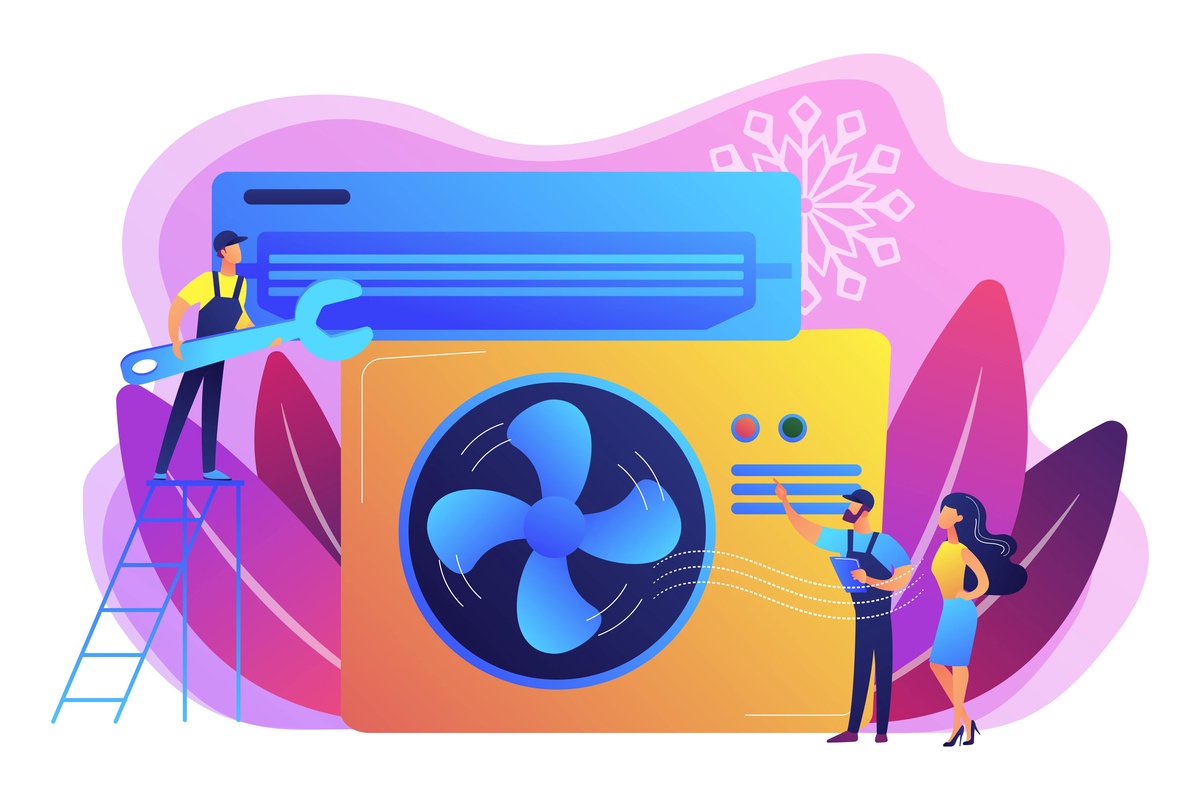As a homeowner, understanding the various systems that keep your household running smoothly is crucial. One of the most important systems is your HVAC (Heating, Ventilation, and Air Conditioning) system. This intricate network of components ensures that your home remains comfortable throughout the year, regardless of the weather outside. However, like any mechanical system, HVAC systems can encounter problems. In this article, I will discuss the most common HVAC problem and provide solutions to address it effectively.
Importance of regular maintenance for HVAC systems
Before delving into the common HVAC problem, it is essential to emphasize the significance of regular maintenance for these systems. Just like your car, your HVAC system requires routine maintenance to operate efficiently and prolong its lifespan. Regular maintenance includes tasks such as cleaning or replacing air filters, inspecting and cleaning coils, checking electrical connections, and lubricating moving parts. By investing in regular maintenance, you can prevent many common HVAC problems from occurring and ensure that your system operates optimally.
Understanding common HVAC problems
Despite regular maintenance, HVAC systems can still experience issues. Understanding the common problems that can arise will help you identify potential issues and take appropriate action. Some common HVAC problems include:
- Air conditioner not cooling
- Uneven heating or cooling
- Poor airflow
- Strange noises or odors
- Constant cycling on and off
In this article, we will focus on the most frequent HVAC problem: an air conditioner not cooling.
Most common HVAC problem: Air conditioner not cooling
During hot summer months, a malfunctioning air conditioner can quickly turn your home into an uncomfortable environment. When your air conditioner fails to cool your home adequately, it is essential to identify the root cause and find a solution promptly. Several factors can contribute to an air conditioner not cooling effectively:
-
Dirty air filters
Clogged air filters restrict airflow, causing your air conditioner to work harder and reducing its cooling capacity. Regularly cleaning or replacing air filters can help resolve this issue. -
Refrigerant leak
The refrigerant is responsible for absorbing heat from your home's air. If there is a leak in the system, the refrigerant level decreases, resulting in reduced cooling performance. Only trained HVAC technicians should handle refrigerant leaks. -
Faulty compressor
The compressor is the heart of your air conditioning system, responsible for circulating refrigerant and facilitating heat transfer. If the compressor malfunctions, it can impact the cooling capacity. A professional HVAC technician should diagnose and repair compressor issues.
To address an air conditioner not cooling, it is advisable to contact a reputable HVAC repair Denver, such as Havana Solutions HVAC Repair. Their experienced technicians can diagnose the problem accurately and provide the necessary repairs to restore your cooling system's functionality.
Other common HVAC problems
While an air conditioner not cooling is the most prevalent HVAC problem, there are other issues that homeowners may encounter. Some of these problems include:
-
Uneven heating or cooling
This issue often arises due to improper ductwork design, insufficient insulation, or a malfunctioning thermostat. A professional HVAC contractor can assess your system and recommend appropriate solutions. -
Poor airflow
If you notice weak airflow from your vents, it could be due to a clogged air filter, blocked ducts, or a faulty blower motor. Regular maintenance and professional assistance can help resolve this problem. -
Strange noises or odors
Unusual sounds or unpleasant odors coming from your HVAC system may indicate issues such as worn-out belts, motor problems, or mold growth. It is crucial to address these problems promptly to prevent further damage and maintain indoor air quality. -
Constant cycling on and off
If your HVAC system frequently turns on and off, it could be due to a malfunctioning thermostat, dirty coils, or refrigerant issues. A professional HVAC technician can identify the underlying cause and provide the necessary repairs.
Troubleshooting HVAC problems
While some HVAC problems require professional assistance, there are a few troubleshooting steps you can take before reaching out to an expert. These steps may help you identify minor issues and potentially resolve them:
-
Check the thermostat
Ensure that the thermostat is set to the desired temperature and in the correct mode (cooling or heating). Replace the batteries if needed. -
Inspect the air filters
Dirty air filters can restrict airflow, affecting your system's performance. Clean or replace the filters regularly to maintain optimal airflow. -
Clear debris around the outdoor unit
Remove any debris, such as leaves or branches, obstructing the outdoor unit. This obstruction can hinder the system's efficiency.
If these troubleshooting steps do not resolve the issue, it is advisable to contact a professional HVAC technician to avoid further complications.
When to call a professional HVAC technician
While some HVAC problems can be resolved through troubleshooting, there are instances where professional assistance is necessary. It is recommended to call a professional HVAC technician in the following situations:
- If you are unable to identify the problem or its cause
- If you are uncomfortable performing troubleshooting steps
- If the problem persists despite your efforts
- If there are unusual sounds, odors, or leaks from your HVAC system
- If you suspect electrical or refrigerant issues
Remember, attempting complex repairs without proper knowledge and experience can worsen the problem or pose safety risks. It is best to rely on the expertise of trained professionals to address HVAC problems effectively.
Preventive measures to avoid common HVAC problems
While HVAC problems can arise unexpectedly, there are preventive measures you can take to minimize the likelihood of experiencing common issues. Incorporating the following practices into your routine can help maintain the health and efficiency of your HVAC system:
-
Schedule regular maintenance
Arrange annual or bi-annual maintenance visits with a trusted HVAC company in Denver. These visits allow technicians to inspect, clean, and tune up your system, identifying and resolving potential problems before they escalate. -
Clean or replace air filters
Regularly cleaning or replacing air filters ensures proper airflow and prevents dust and debris from accumulating in your system. -
Keep the outdoor unit clear
Regularly remove debris around the outdoor unit to maintain optimal airflow and prevent obstructions. -
Maintain proper insulation
Adequate insulation in your home helps retain cool or warm air, reducing the strain on your HVAC system.
By implementing these preventive measures, you can significantly reduce the chances of encountering common HVAC problems and extend the lifespan of your system.
Conclusion
In conclusion, understanding the most common HVAC problem and effectively addressing it can greatly enhance your home's comfort and energy efficiency. Whether it is an air conditioner not cooling or other issues like poor airflow or strange noises, prompt action is crucial. Regular maintenance, troubleshooting when appropriate, and seeking professional assistance when necessary are key steps towards resolving HVAC problems. By taking preventive measures and investing in the services of reputable HVAC companies and contractors in Denver, such as Havana Solutions HVAC Repair, you can ensure that your HVAC system continues to operate optimally, providing comfort for you and your family for years to come.


No comments yet